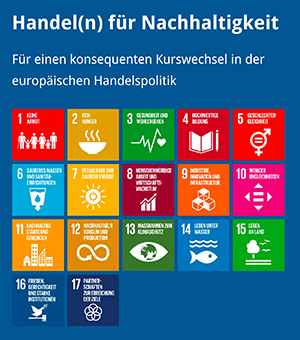AEPF, Milano, October 10, 2014, Panel 2
Dear friends, comrades and colleagues,
With regards to the role of social services and social security in the economy and society, we observe a clash of cultures.
In the European left, our focus is a needs based economy and state model. We identify objective needs of the people, such as housing, health, education. We define these needs as a right. In the decades after the Second World War, our view was actually the prevailing approach, expressed in numerous declarations and conventions on the United Nations level.
Neoliberal economists translate the word 'needs' into the word 'demand,' and 'demand' into 'market'. The right they want to protect is the right of investor access to this market. This attitude prevails among governments and parties of our times. Trade agreements serve as tools to force country by country to open its markets.
The decay of left wing political forces around the world came along with the paradigm change I just described. To counter this trend we must increase our efforts to address the needs of people and to present economic systems that function with regard to the fulfilment of these needs. The capitalism of today does not, nor did the socialism of the past address these fundamental rights sufficiently.
To express myself clearly: I am not arguing that the state is the only institution that should provide housing. My point is that the role of the state is to guarantee to every member of a society, all that is needed to participate in it. Beyond this point, there is a lot of space for divergence, individuality, and market activity. From my own life experience as a citizen of the GDR, I can tell you that a state that provides for the basic needs and ignores individuality and democratic participation is also bound to fail.
The recent so-called “Deep and Comprehensive Free Trade Agreements” jeopardise the role of the state in guaranteeing the rights of the citizens. Investor-to-State Dispute Settlement mechanisms are a threat to the democratic advancement of societies. The DCFTAs take away the ability for a government to stimulate local development through intelligent public procurement. Provisions for local sourcing are dubbed as discrimination. Achievements like free access to even tertiary education in Germany and some other European countries are challenged by agreements under negotiation like the TTIP, which aims to create a privatised education market.
DCFTAs are more than just trade agreements. The TTIP for instance is aiming to create a transatlantic common market. By definition, a common market reduces the duplication of work. This was also the case when the European common market was created in 1992. The common market was beneficial for large economic actors like corporations. It became easier to distribute goods created in mass production. This was to the detriment of small producers. The business of an estimated 40.000 shoe makers across Europe seized to exist.
GUE/NGL, the left group in the European Parliament has commissioned a study that looks into the consequences TTIP will have on state budgets. While some companies will benefit, many workers will lose their jobs. Given our language diversity, the European labour force is not mobile enough to go and find jobs elsewhere in Europe. Labourers who do are likely to find employment only if they are ready to accept lower wages or precarious jobs in temporary contracts. The study estimates that over 1 million people in Europe will lose their job, which will lead to additional state budget costs. The increased numbers of people in need of welfare payments will lead to costs exceeding 20 billion Euros. Many of the largest corporations benefiting from TTIP will not pay these costs and will likely continue to avoid tax payments at all. The likely response of governments will be further austerity measures.
When trying to defend or develop need-based social security systems in our respective nation states, we face the dilemma of a growing interdependence of economic actors around the planet. Large corporations are building up global value and production chains. Workers in Asia contribute to the profits of EU based investors and vice versa. The workers in the German export oriented economy increasingly depend on the purchasing power of the Chinese consumer. At this stage, we lack the institutional means to keep pace with this development and are unable to create a regulatory framework to safeguard the rights of every participant in the emerging economic relations. Our societies also suffer from heavy losses in tax income. Still, some governments, particularly in Southeast Asia, are rejecting attempts to safeguard the well-being of their workforce, especially migrant workers. These governments argue that a low level of rights is a competitive advantage of their economies. They roll out the red carpet for foreign investors by signing investment agreements and are happily accepting provisions which would prevent future governments from changing political course. These provisions ridicule elections and destroy trust in democracy.
Our concern is that the new DCFTAs under construction between the EU and a number of Asian countries will worsen this situation. These agreements contain toothless sustainability chapters addressing some social and environmental aspects. But because they reduce regulation, they can initiate a race to the bottom. I must remark that for the current governments of Malaysia or India, even a very limited reference to internationally agreed social and environmental standards is perceived as illegitimate interference.
Let us join together in redefining and defending universal rights. Let us create the institutions we need to enforce our rights, together. I commend, in this regard, the current attempt to create an international convention which creates binding obligations for transnational corporations to respect human rights, social rights and the environment.
We had success in the European Parliament in passing legislation that since January 2014, forces European corporations to publish what they pay to governments anywhere in the world.
I also explicitly support the proposals of the organisers of this event regarding the establishment of a universal social protection scheme under the auspices of the United Nations. But this task will not be easy. When the outgoing EU Commissioner for Employment and Social Affairs, Laszlo Andor, presented a proposal for an EU unemployment insurance, complementary to the national schemes, the reactions in wealthier Member States were rather negative. In particular, the tea party comparable right wing populist parties campaign against any policy approach driven by solidarity.
But solidarity instead of ever present competition should become our guiding principle. I welcome and actively support the initiative to define an alternative trade mandate, which was started by a great network of NGOs as a counter strategy to the rapidly growing network of DCFTAs and BITs around the planet. These agreements prioritise the interests of transnational corporations. Let us shift priorities to the interests of local and regional economic and social development.
http://www.dielinke-europa.eu/article/9352.impact-of-trade-agreements-such-as-ttip-on-social-protection-system-welfare-state.html









